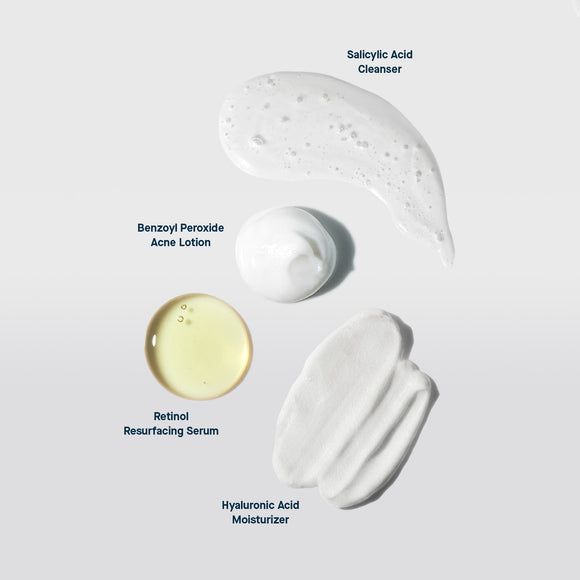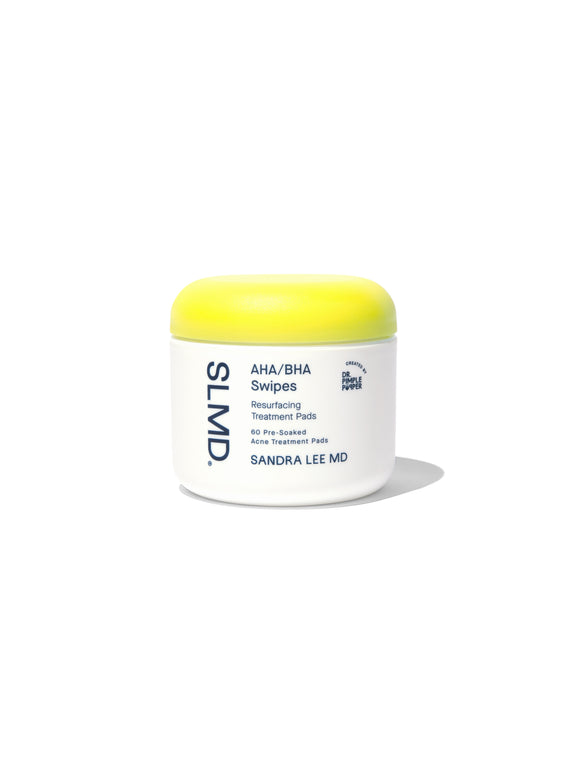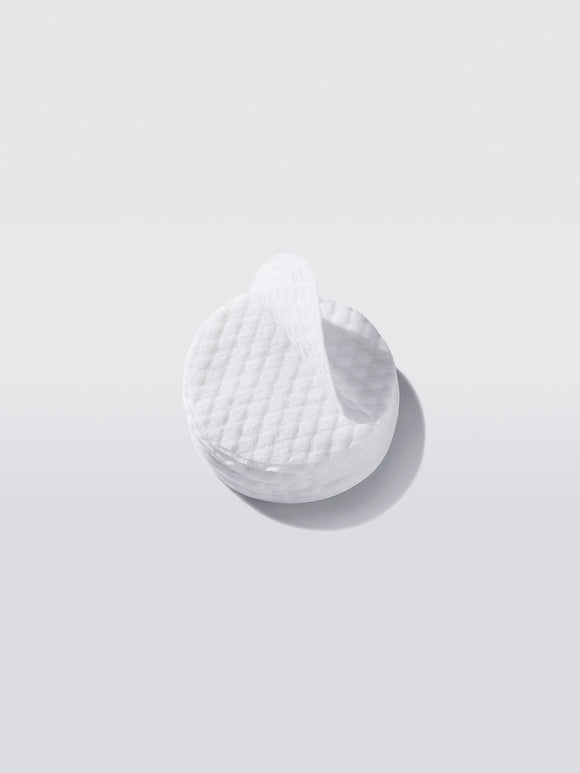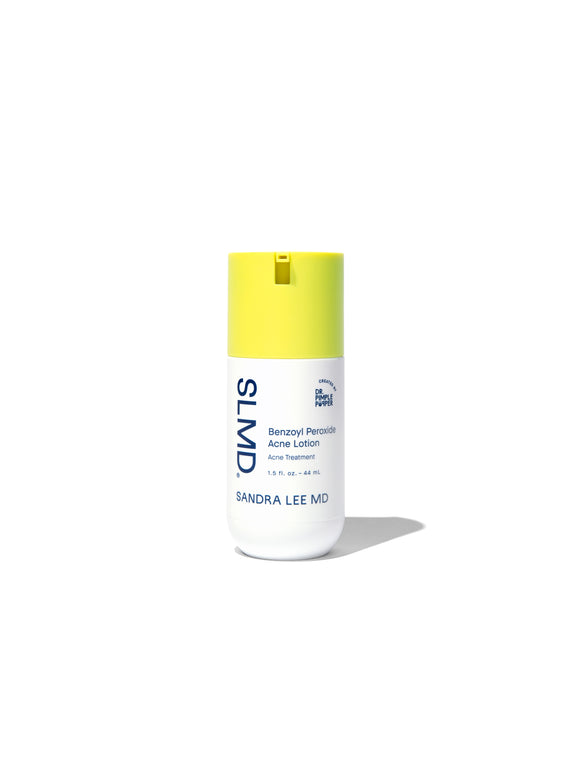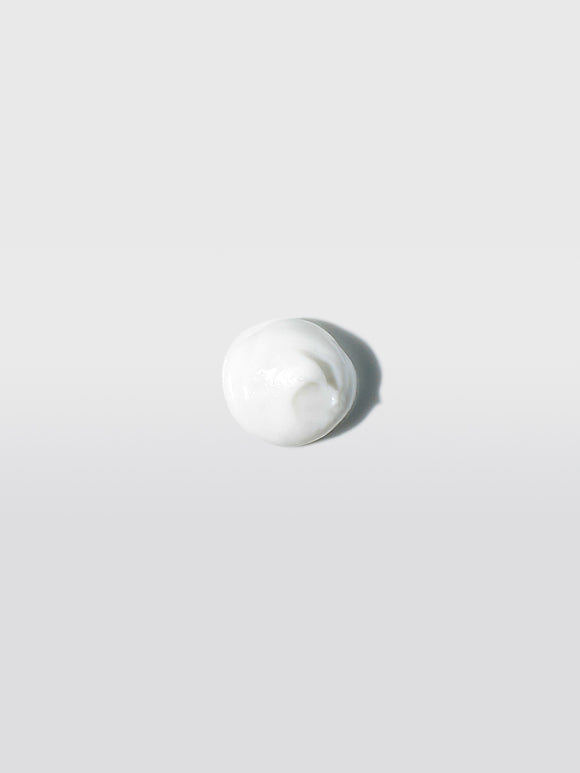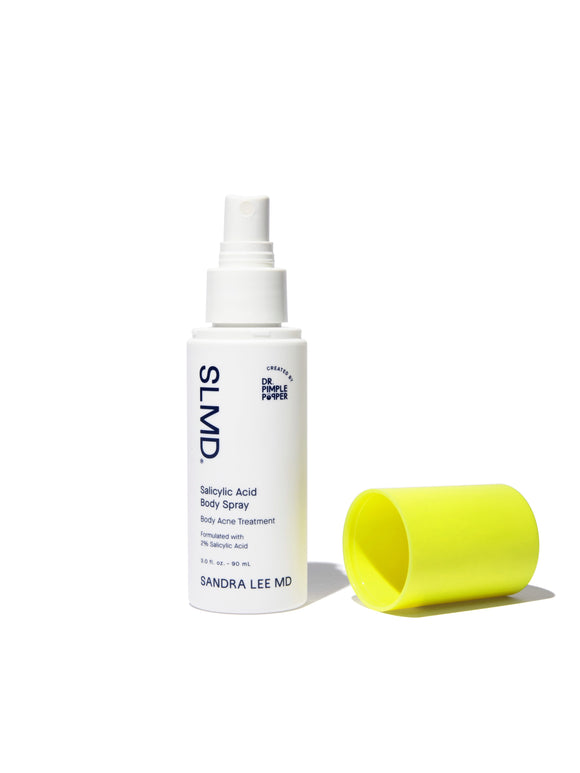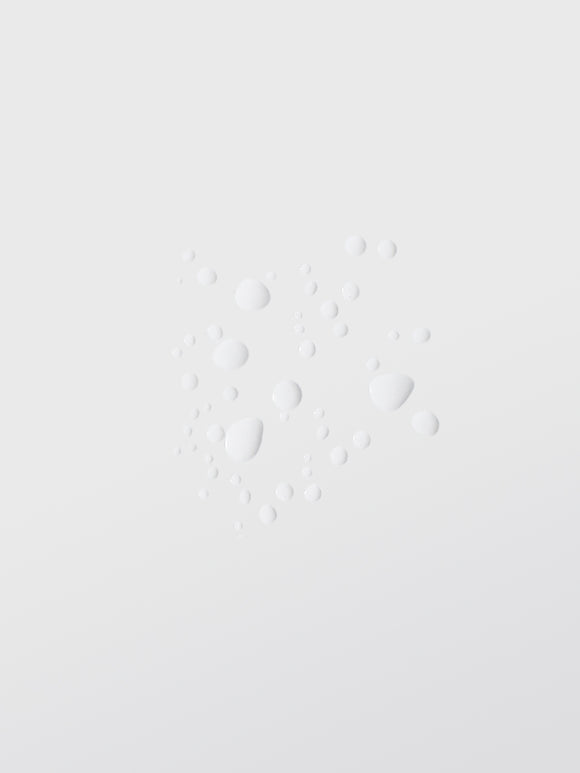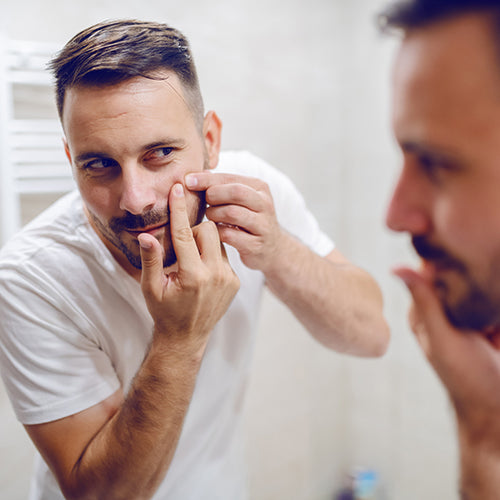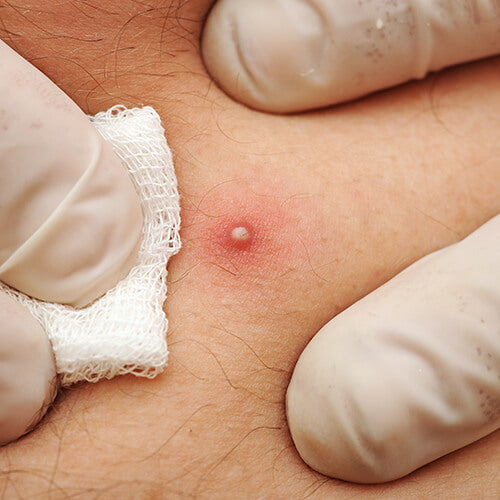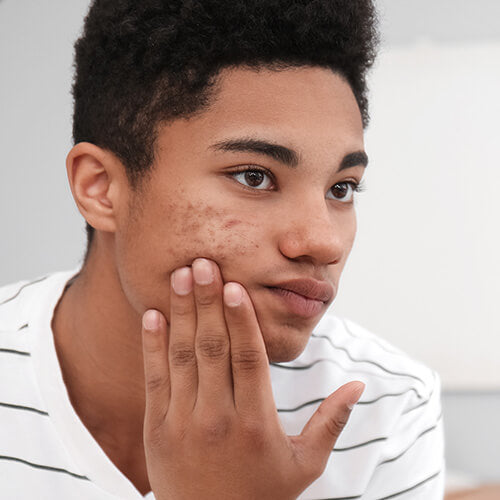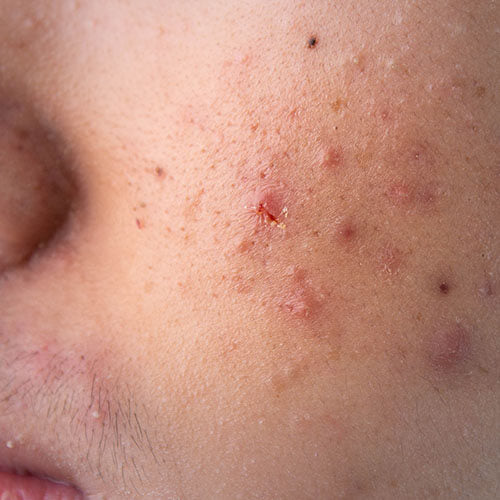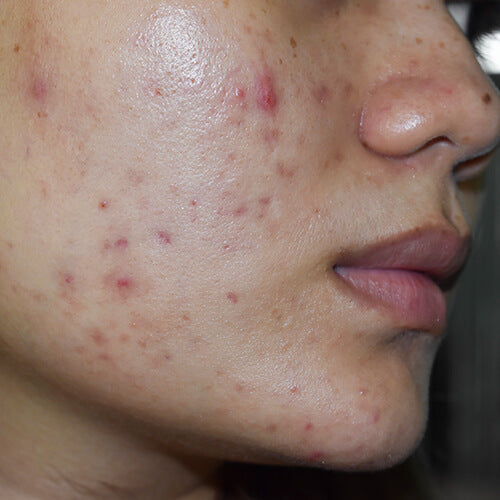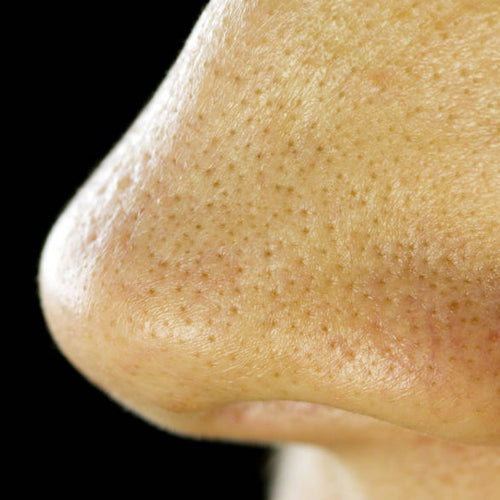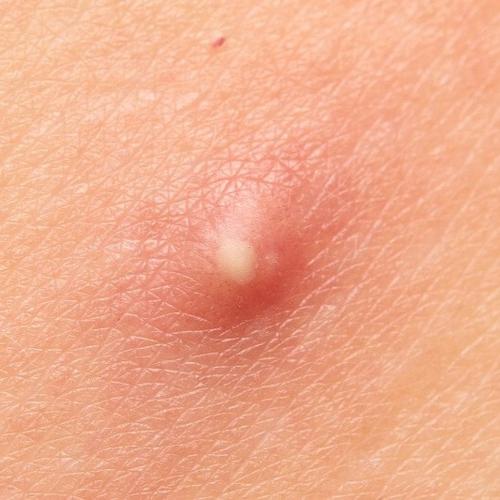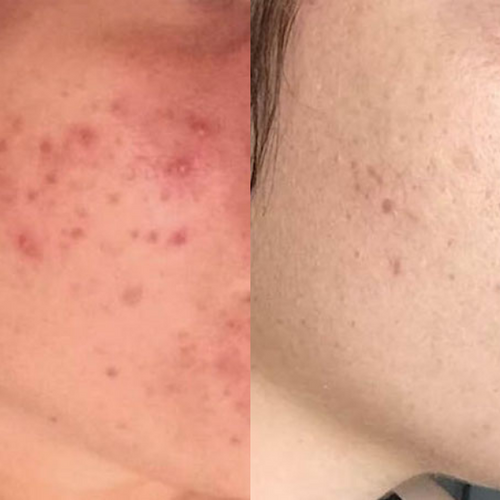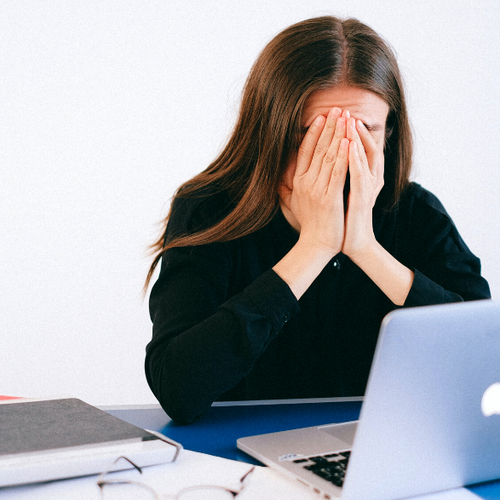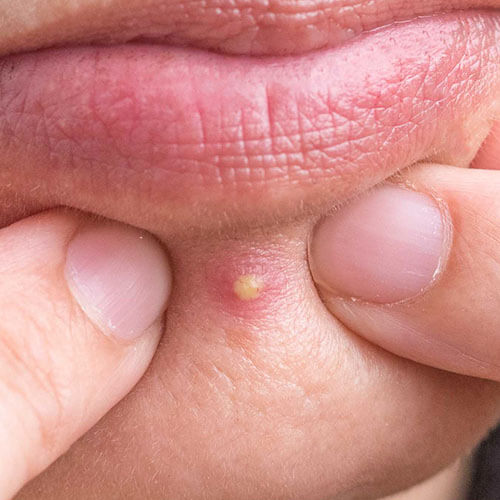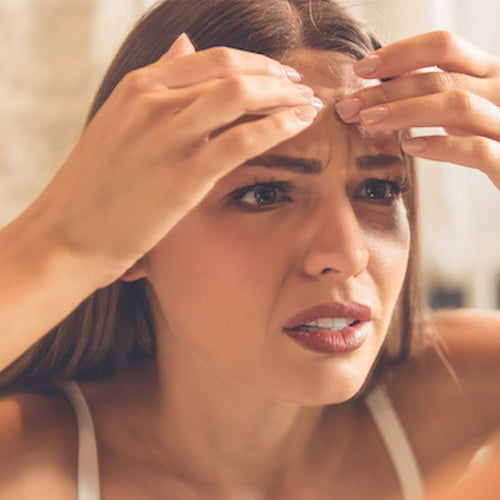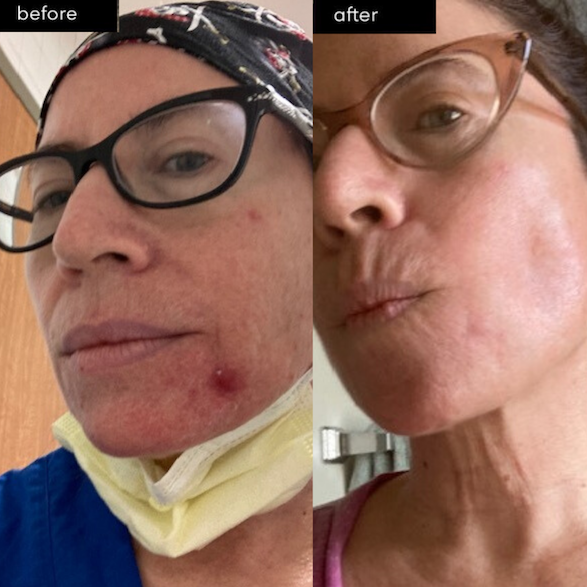
Breaking Down Mask Irritation
Dr. Sandra Lee (aka Dr. Pimple Popper) explains the difference between maskne and maskitis. These two common skin reactions to wearing a mask can occur whether you have to wear a mask for work, or due to pandemic restrictions. We reveal how to tell if you have one of these conditions, and how to treat and prevent both maskne and maskitis.Published:
3 minute read
Things have changed in the past few years, as we've come to know another type of "face mask." As a result, you may have heard about or personally experienced skin reactions in response to wearing masks: maskne and maskitis. Our favorite skincare source and founder of SLMD Skincare, Dr. Sandra Lee (aka Dr. Pimple Popper), is here to help you distinguish the difference between the two, and figure out how to tame both moving forward.
Article Quick Links
What is maskne?
Maskne is a form of acne mechanica. It happens when acne forms under your mask, and is the result of both friction (from the cloth or plastic of the mask) and occlusion (when heat, humidity, and the mask's physical barrier create ideal conditions for C. acnes bacteria).
Who is more prone to maskne?
People who have oily skin, are already acne-prone, and/or are wearing a solid amount of makeup are more likely to experience maskne.“Wearing a mask for a long period of time promotes occlusion — clogging of the pores with dirt and bacteria and dead skin cells and oil. Increased humidity under a mask due to breathing, speaking into the enclosed space, wearing makeup, having oilier skin etc. also promote acne to occur in that area,” says Dr. Sandra Lee.
Dr. Pimple Popper's maskne tips
#1 Incorporate alpha/beta-hydroxy acids into your routine
Glycolic acid, salicylic acid, and lactic acid are some of Dr. Sandra Lee’s favorites — so much so, that she incorporated them into her own SLMD Skincare products.
- AHA/BHA Swipes. Pre-soaked pads loaded with exfoliating acids. Great for keeping in the car on the go, so you can swipe your skin before and after wearing a mask to keep your pores clear.
- Salicylic Acid Body Spray. Originally created to be used on the body, this spray has quickly become Dr. Lee’s top maskne hack that has gone viral on TikTok and helped all of those that have tried it. Give your mask a few spritzes, fan to dry, and decrease your chances of experiencing impurities that cause maskne.
#2 Use products formulated with anti-bacterial agents
Ingredients like benzoyl peroxide and sulfur (especially good for those who find benzoyl peroxide to be too drying and irritating) are staples that should be in everyone’s acne-fighting arsenal. They are able to inhibit the growth of acne causing bacteria, responsible for those red, inflamed pimples and under the skin blemishes.
Try: SLMD Benzoyl Peroxide Acne Lotion, formulated with 2.5% benzoyl peroxide
What is maskitis?
Maskitis isn't the same as maskne. Maskitis is any type of rash that a person may develop due to an allergic reaction to the mask itself, or due to irritation because the mask is constantly rubbing on the skin.
Who is more prone to maskitis?
People who more regularly experience dermatitis (skin rashes) and eczema are more likely to experience maskitis. Those with very dry, easily irritated skin are also more vulnerable.
Dr. Pimple Popper's maskitis tips
#1 Keep your hands off
Complications arise when people scratch their rashes. If you scratch your rash, you may experience immediate relief but know you are also introducing more bacteria from your nails and fingers into the area, which may cause an infection and will ultimately make the situation worse.
#2 Incorporate nourishing ingredients into your skincare routine
Look for products containing anti-inflammatory and antioxidant ingredients, like niacinamide, colloidal oatmeal, vitamin E, and ceramides — all known to support the skin's protective barrier.
Dr. Lee's last word
For many of us, mask wearing is a part of daily life — regardless of what's going on in the world! Keeping our skin healthy while wearing masks for work, or for any reason, doesn't have to be a challenge. With the right skincare and some protective measures, you can reduce your chances of developing maskne and maskitis, and heal it when it happens.
—Dr. Sandra Lee




